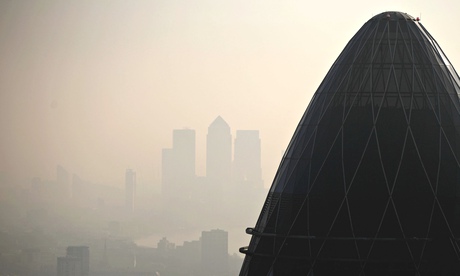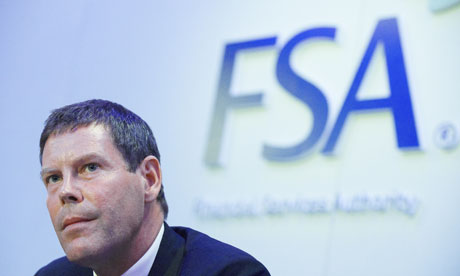Boardroom greed: how to bring an errant multinational to heel
Changing the law on limited liability is the nuclear option, but it could force errant firms to repent

Roll the clock back 36 years. It is December 1978 and the so-called winter of discontent is in its early stages. Over the next couple of months the papers will be full of stories about rubbish piling up in the streets and of cancer patients failing to receive treatment. Britain is gripped by widespread industrial action, but public support for strikes is crumbling.
A few months later, in May 1979, a new government arrives in power. Despite failed attempts in the recent past, it decides that something must be done to curb the power of organised labour. Self-regulation has failed, the administration of Margaret Thatcher decides. It is time to use the power of the state to end abuses.
Bit by bit over the next decade the trade unions are systematically weakened. When it comes to the crunch they are not nearly as powerful as they think they are.
So what is the difference between the trade unions in the 1970s and the big corporations today? If anything, the banks, the multinational tech companies and the giants of the energy sector are even more powerful than the unions were four decades ago. And like the unions of yesteryear, business has had opportunities to put its own house in order – and spurned them. For the union general secretary telling Harold Wilson or Jim Callaghan what his members will and will not wear, read the chief executive thumbing his nose at David Cameron or George Osborne.
Meanwhile, the list of corporate scandals is getting longer. We’ve had horsemeat passed off as beef; the rigging of the foreign exchange market; the mis-selling of payment protection insurance; aggressive tax avoidance through webs of offshore shell companies; sweetheart deals between multinationals and Luxembourg. Only yesterday, the Financial Conduct Authority said some pension companies were screwing pensioners by failing to provide them with the best deals on offer.
Meanwhile, the Federation of Small Businesses said a fifth of its member companies had been subject to the bullying demands of big corporations, with many pushed to breaking pointas a result.
Make no mistake, the scandals are damaging. After a parliament marked by times of austerity and falling living standards, trust in executives to do anything but look after their own selfish interests is at a low ebb. Energy companies and banks are as popular with the public as the trade unions were during the winter of discontent. A government that decided to curb corporate power would not lack support from the voters. Osborne’s “Google tax” on the diverted profits of multinationals was the single most popular policy in last week’s autumn statement.
There are, though, differences between now and 1979. One is that the big multinational companies are more powerful than the trade unions were. Another is that Thatcher had a clear idea about what she wanted, whereas today there is no real blueprint for reform.
All this week the Guardian has been trying to fill that vacuum. Our series on taming corporate power is designed to explode the myth that there is nothing that could be done to affect boardroom behaviour. It’s not the ideas that are lacking, it’s the political will to persevere with a process that will be long and difficult.
Step number one should be to use the existing powers of the state, which even in this era of globalisation and footloose capital are considerable. Ministers can break up monopolies, insist that the investment arms of banks are severed from their retail operations and force companies to pay a living wage when they receive public contracts. They should use these powers and add to them. Pharmaceutical companies have to prove that any new drugs they market will not harm the public; the same test should be applied to new products developed by the financial sector.
Step number two involves redressing the imbalance of power between capital and labour. Those troubled by the growing gap between rich and poor, or by the relentless squeeze on wages since the recession, need look no further for an explanation than the decline in trade union power. Evidence shows that those workers still covered by collective agreements earn higher wages, so one possible reform would be to set up new tripartite bodies for wage bargaining in certain sectors, such as contract cleaning.
A future Labour government could also do worse than to dust down the Bullock report from 1977, which called for greater employee participation in the running of companies, for the need to build trust within organisations and for the desirability of Britain learning from the industrial models of other European countries, Germany in particular. This might be done voluntarily, with companies offered the incentive of lower corporation tax for each worker representative on the board, or by statute.
Lower corporation tax is, of course, hardly an incentive for those companies that are paying virtually no corporation tax in the first place. Osborne is rightly frustrated that some multinationals do billions of pounds of business in the UK but still declare nugatory profits, despite the steady reduction in corporation tax. So, step number three involves ensuring that companies pay what is due. The key here is for governments to insist on country-by-country reporting by the Googles and Amazons of this world, because this would ensure that all multinationals would have to declare the countries in which they operated, what the company is called in each location, its financial performance in each country it does business (including inter-company trade), and how much tax it pays to each government. Companies would have to abide by an international financial reporting standard and provide information for all tax jurisdictions. Shining a light on the murkier activities of multinational companies is vital.
Finally, there’s the nuclear option: stripping companies of the protection provided by limited liability. The owners, the shareholders and those running companies wield enormous power but don’t bear full responsibility for their actions because their liability is limited to the size of their investment in a company or partnership. But limited liability is a privilege not a right, and in return for granting it society should get something back in return. The argument the Thatcher government used when it said employers could sue unions for damages caused by strikes was that there was no such thing as a something-for-nothing world, and the same argument applies to companies.
The deal should be that companies get the protection limited liability provides in return for looking after all their stakeholders: the workers they employ, the customers they serve, the companies that form their supply chains, the taxpayers who pay for the transport infrastructure and the education system that businesses require. The deal should not be limited liability in return for boardroom greed, running rings round the taxman and breaking the law.
As Prem Sikka said in this series, any change to limited liability would be fiercely resisted. But even the suggestion of change would concentrate minds. Imagine, for example, that a future government set up a royal commission to look into the issue. Would this lead to companies treating their staff better and paying more tax? You bet it would.


